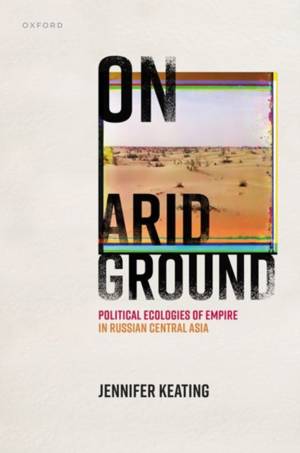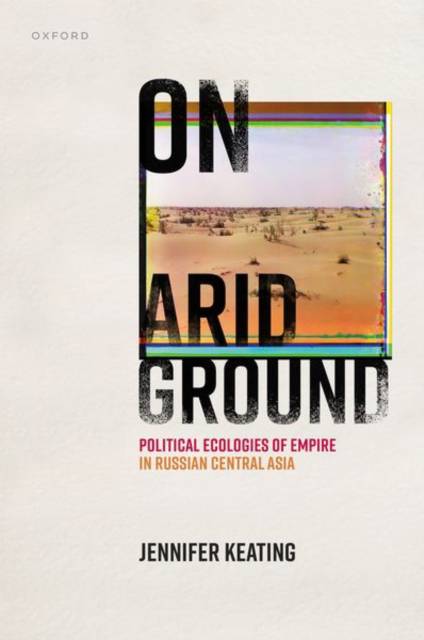
Je cadeautjes zeker op tijd in huis hebben voor de feestdagen? Kom langs in onze winkels en vind het perfecte geschenk!
- Afhalen na 1 uur in een winkel met voorraad
- Gratis thuislevering in België vanaf € 30
- Ruim aanbod met 7 miljoen producten
Je cadeautjes zeker op tijd in huis hebben voor de feestdagen? Kom langs in onze winkels en vind het perfecte geschenk!
- Afhalen na 1 uur in een winkel met voorraad
- Gratis thuislevering in België vanaf € 30
- Ruim aanbod met 7 miljoen producten
Zoeken
€ 185,45
+ 370 punten
Omschrijving
On Arid Ground focuses on the relationships between empire and environment in Central Asia, using environmental history to examine the practice of Russian imperialism in Turkestan at the end of empire, from the 1860s until 1916. It reveals for the first time a comprehensive assessment of the environmental imprint of Russian colonisation, and shows how local ecologies fitted into broader repertoires of imperial rule, accommodation, and resistance. Ranging widely above and below the surface in Turkestan, from the deserts of Transcaspia to the highlands and lowlands of rural Fergana and Semirech'e, Jennifer Keating explores infrastructure development, migrant settlement, land reclamation and dispossession, the commodification of nature, and environmental violence to reveal the ways in which ecological change was central to the building and breaking of empire. Attentive to connections, synchronicities and scale, On Arid Ground makes the case for looking beyond cotton and water in Central Asian context, for the powerful material role played by animals and plants, sand, silt, and salt in human histories, and for the less visible relationships between far-flung people and things within and beyond Turkestan's borders. Laying bare the political roots and repercussions of environmental change, the volume brings fresh perspectives both to the history of Central Asia and to that of the wider Russian empire across Eurasia.
Specificaties
Betrokkenen
- Auteur(s):
- Uitgeverij:
Inhoud
- Aantal bladzijden:
- 268
- Taal:
- Engels
- Reeks:
Eigenschappen
- Productcode (EAN):
- 9780192855251
- Verschijningsdatum:
- 14/07/2022
- Uitvoering:
- Hardcover
- Formaat:
- Genaaid
- Afmetingen:
- 165 mm x 238 mm
- Gewicht:
- 639 g

Alleen bij Standaard Boekhandel
+ 370 punten op je klantenkaart van Standaard Boekhandel
Beoordelingen
We publiceren alleen reviews die voldoen aan de voorwaarden voor reviews. Bekijk onze voorwaarden voor reviews.









